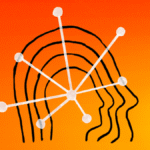(RNS) — I am a Zionist, a person who views the return of the Jewish people to their historical homeland as a national liberation project. I am also a rabbi, a committed Jewish leader who cannot remain silent in the face of starvation and devastation in Gaza.
This combination seems improbable to many people. Driven by fear and rage, we have adopted the worst framing of the Israeli-Palestinian conflict, the framing affirmed by extremists on both sides — namely, a zero-sum game in which the rights of only one people can matter.
Americans have significant power to stop the carnage in Gaza if we can reject this mode, overcome our fears of the other side’s viewpoint and make common cause.
What makes Jews afraid? It’s a long list. With antisemitism at a historic high, they are afraid that calling out the immorality of the continuing assault on Gaza provides ammunition for haters. It is not just hate from the antisemitic “right.” Jews who count themselves as progressive have increasingly been shunned by allies, even if they criticize Israel’s policies in Gaza.
Some Jews are afraid of the label of genocide, which can make their love of Israel feel like complicity in war crimes. With contemporary Jewish identity still so profoundly tied to the Shoah, they may also fear that applying the term in another context negates the unique horror of the Jewish experience.
Oct. 7 was shattering for Jews around the world, and the immediate demonstrations against Israel — many celebrating the Hamas attack — left them speechless. Ongoing pro-Palestinian protests stoke these fears. Chants for Palestine to be free “from the river to the sea” sound to some like calls for the state of Israel, home to almost half the Jews in the world, to cease existence.
Universities, the very incubator of Jewish success in North America, remain a prime engine of these protests. Some Jewish students have been bullied; many more feel unsafe. To make matters worse, the Trump administration is using the antisemitism on campus expressed by a tiny minority of protesters as an excuse to attack higher education in our name. It forces Jews into a dangerous middle space between contesting powers.
Jews are not the only ones who are afraid. Those who support the Palestinian cause (including Jews) are afraid of surveillance and, for non-citizens, possible deportation. Many have lost family and friends and are terrified that the Israeli government will succeed in wiping Gaza off the map. Some have become targets as well. People who have not taken a “side” feel pressured to do so. They are afraid that whatever they do they will betray their values.
If we want to make the situation better, we need to understand these fears and work together despite them.
Start with the fear of feeding haters. When former IDF Deputy Chief of Staff Yair Golan claimed earlier this year that Israel’s current government endangers the nation’s existence by making it a pariah state, Netanyahu accused him of a blood libel. Golan may have used provocative language, saying, “A sane country does not fight against civilians, does not kill babies as a hobby, and does not give itself the aim of expelling populations,” but he recognized that the death of almost 60,000 Palestinians, including an estimated 17,000 children, is what feeds the hate. Standing up together to stop the violence can heal it.
Other Jewish leaders around the globe have spoken out against the war as it is being prosecuted now. Rabbi Jill Jacobs has argued, echoing high-level Israeli defense experts, “This war long ago ceased being a war to neutralize Hamas, return the hostages, and protect Israelis, and became a war of revenge and of settlement that serves primarily to hold the government coalition together and keep Netanyahu out of prison.”
Nor should we fear the genocide debate. Holocaust and genocide scholar Omer Bartov resisted the label for a long time, but in a recent op-ed said he has been forced to conclude that “Israel is committing genocide against the Palestinian people.” He believes the goal in Gaza is “to force the population to leave the Strip altogether or, considering that it has nowhere to go, to debilitate the enclave through bombings and severe deprivation of food, clean water, sanitation and medical aid to such an extent that it is impossible for Palestinians in Gaza to maintain or reconstitute their existence as a group.”
Whatever we call the violence and starvation in Gaza, we can agree that it must be stopped.
What about the chant, “from the river to the sea”? Some protesters who view Zionism as a settler colonial project doubtless mean that they want to see it vanish and care little for what happens to the Jews who live there. Many others, though, take up the chant to express the fact that the status quo before Oct. 7 was morally untenable.
Many Jews also feel that the right of the Jewish people to self-determination does not include a right to endlessly hold another people under occupation or subject Palestinian citizens of Israel to perpetual second-class status. They tirelessly press Israel to fulfill the promise of its Declaration of Independence to “ensure complete equality of social and political rights to all its inhabitants.” The peoples of the land must find a way to live together with equity.
By draining the polarization over Gaza of their respective fears, both sides would clear space for finding points we agree on. It requires abandoning our ideological purity, but what would help Israel or starving Palestinians more — maintaining our sense of correctness or creating a more substantial power base by finding common ground?
If we weren’t afraid, what could we do together? We could fight to enforce the Leahy laws of the Foreign Assistance Act, which prohibit military aid to countries that block humanitarian aid or demonstrate gross abuses of human rights. Protest the Trump administration’s shipment of “bunker buster” bombs, 1,800 of which arrived in Israel in February, and more are promised in the $3 billion arms sale that was fast-tracked in March to avoid congressional review.
We could press more urgently for an end to the war and return of the remaining hostages. Raise funds for organizations actively helping Gazans. Support the efforts of the courageous organizations operating in the very midst of the conflict that demonstrate a commitment to justice for all the peoples of the land.
The fears are real. But blinding ourselves to the humanity of “the other” threatens our own.
(Rachel S. Mikva is the Herman Schaalman professor of Jewish studies at Chicago Theological Seminary and author of “Dangerous Religious Ideas: The Deep Roots of Self-Critical Faith in Judaism, Christianity, and Islam.” The views expressed in this commentary do not necessarily reflect those of Religion News Service.)



